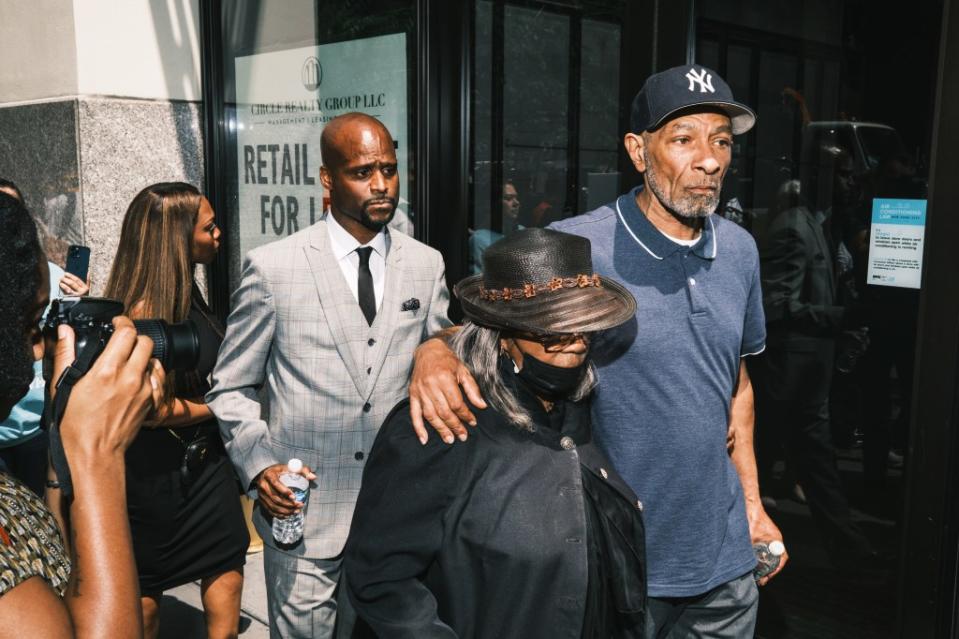
Jordan Neely’s parents are suing Daniel Penny over the death of their son. Nevermind the coroner’s report. Nevermind the fact that they abandoned him and forced him to live out on the street for years instead of having him institutionalized when he posed a danger to them. pic.twitter.com/ObK83a0iAi
— Ian Miles Cheong (@stillgray) December 5, 2024
Here’s a well-reasoned and logical case suggesting that Jordan Neely’s parents might not have initiated the lawsuit against Daniel Penny, but rather it was driven by an “ambulance chasing” lawyer or law firm:
1. Context of the Case:
High-Profile Incident: The death of Jordan Neely on a New York City subway by chokehold has garnered significant media attention, making it a high-profile case with potential for substantial public and legal scrutiny. This kind of visibility is a magnet for lawyers looking to capitalize on public sentiment for financial gain.
2. Legal Opportunism:
Financial Incentive: Civil lawsuits in cases involving wrongful death or negligence can result in large payouts, especially if the defendant is perceived negatively by the public. The tweet references the parents’ alleged abandonment of Neely, suggesting a narrative of negligence which could be exploited by lawyers to paint a sympathetic picture for the plaintiff, regardless of the actual involvement of the parents in the legal process.
3. Parental Involvement:
Historical Disengagement: If, as the tweet suggests, Neely’s parents were not involved in his life during his struggles, their sudden interest in a lawsuit might seem out of character unless prompted by external forces. This disengagement could indicate that they might not have the legal acumen or resources to initiate such a complex legal action independently.
4. Legal Strategy and Motive:
Lack of Specific Accusation: The tweet seems to imply a direct accusation against the parents for initiating the lawsuit while also mentioning their alleged neglect. However, in many high-profile cases, it’s not uncommon for lawyers to take on cases on a contingency fee basis, where they only get paid if they win. The mention of ignoring the coroner’s report might suggest that the lawsuit’s strategy is more about challenging the narrative around the incident rather than a genuine desire for justice by the parents.
5. Public Sentiment and Media:
Ambulance Chasing: Lawyers who specialize in these types of cases often look for opportunities where public sentiment can be leveraged for a favorable outcome. The narrative around Neely’s death, including the racial and socioeconomic aspects, could be seen as an opportunity to push for a settlement or jury sympathy, even if the legal merits might be weak.
6. Legal Precedents and Patterns:
Similar Cases: There are numerous examples where families of victims are approached by lawyers offering to handle legal proceedings without any initial cost to the family, banking on the potential financial reward. These lawyers often craft the legal strategy, including the decision to sue, based on their assessment of the case’s profitability rather than the family’s direct wishes.
7. Legal Documentation:
Court Filings: While not directly referenced in the tweet, if one were to examine the legal documents, it might reveal that the lawsuit was filed by a law firm known for such cases, further supporting the notion that this was a lawyer-driven initiative rather than a parent-initiated one.
Conclusion:
Given this analysis, it’s plausible that the lawsuit against Daniel Penny was not primarily initiated by Jordan Neely’s parents due to personal conviction but was instead spurred by legal professionals seeking to capitalize on a high-profile case for financial gain. The narrative of parental abandonment, as painted by the tweet, could be leveraged by lawyers to argue negligence or emotional distress, even if the parents themselves might not have been the driving force behind the legal action. This scenario fits the pattern of how “ambulance chasing” lawyers operate, focusing on cases where they can sway public opinion or leverage media coverage for a lucrative settlement.
